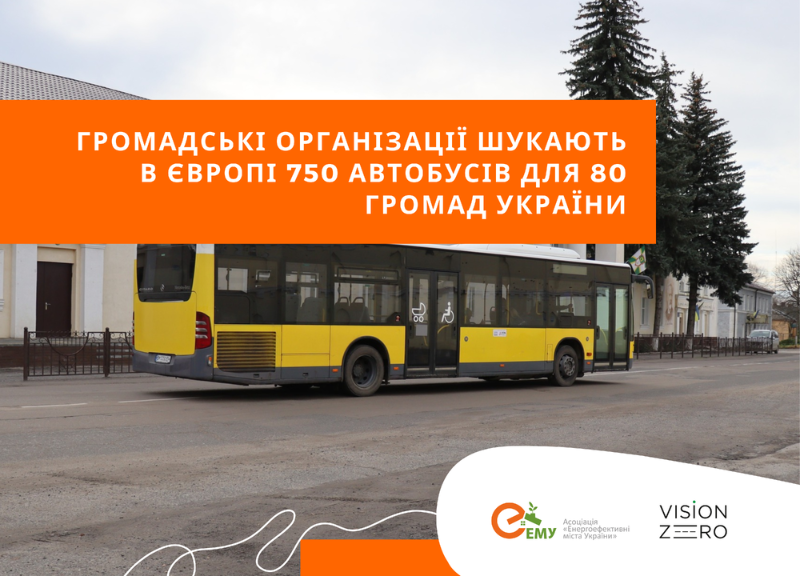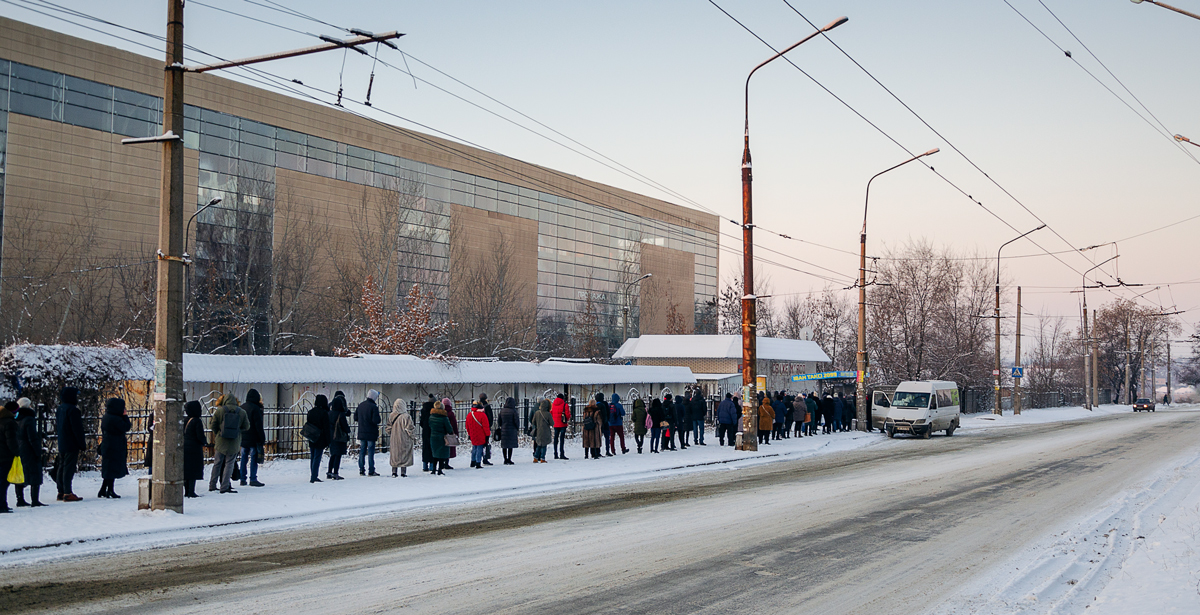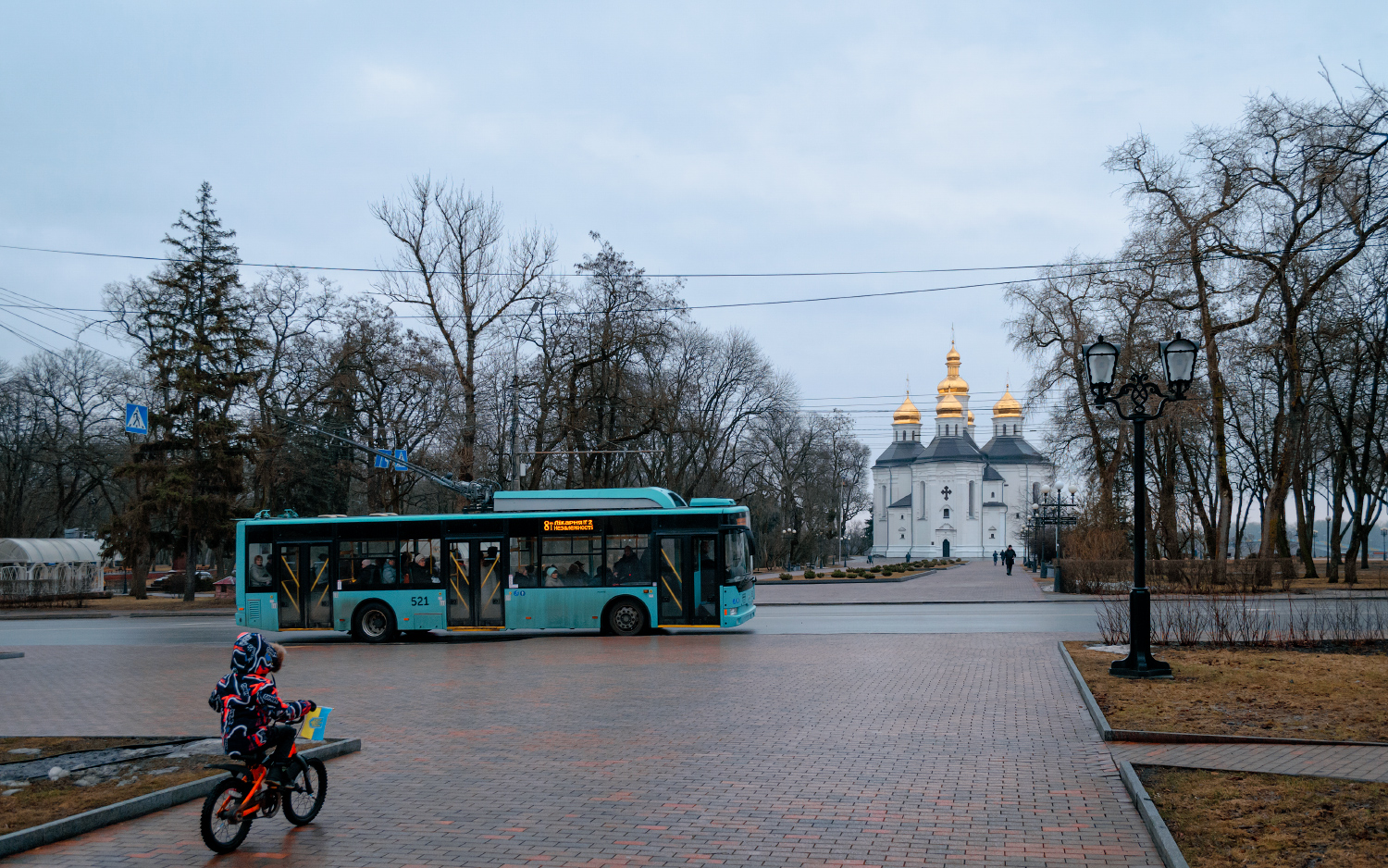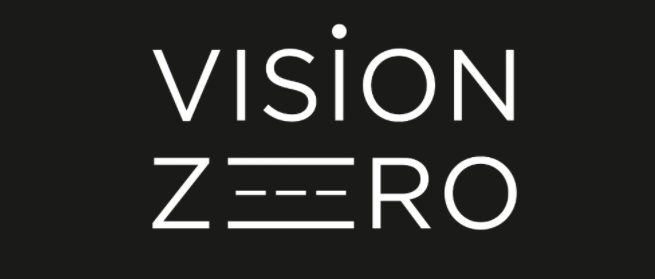
Lviv, Ukraine, 20 June 2024 — Eighty communities across 23 oblasts of Ukraine are appealing to European municipalities, transport companies and non-governmental organizations for assistance in acquiring used buses. These buses will help provide mobility to millions of Ukrainians as a necessary replacement for electric trams and trolleybuses during the periods of energy shortages, especially in winter. This request comes in response to frequent electricity cuts resulting from relentless Russian attacks on the energy infrastructure of Ukraine.
The communities urgently need at least 744 buses to help alleviate transportation challenges, according to the results of a needs assessment survey. To facilitate the search for suitable vehicles and deliver them where they will work well, two Ukrainian organizations, NGO "Vision Zero" and the Association "Energy Efficient Cities of Ukraine" (EECU), have founded the Initiative "Buses for Ukraine." They are calling on European organizations to support and participate in this effort.

Additional requests for used buses have been received from small and medium-sized communities. Some of these communities, such as Konotop, Trostianets, Chortkiv, Boyarka, Bucha, Kostopil, Haivoron, Horodok, Vyzhnytsia, and Bilhorod-Dnistrovskyi, already have operating transport companies and require the buses to enhance their services. Furthermore, half of the requests (41) have come from smaller, predominantly rural communities with populations ranging from one thousand to 25 thousand.

“Given the current situation in Ukraine, used buses—even those running on diesel fuel—are essential. Due to the aggression against our energy system, which has led to severe shortages, cities increasingly need buses to replace electric transport. Additionally, some cities must replace buses destroyed by missile strikes. We are striving to secure as many buses as possible for Ukrainian cities before winter arrives. We anticipate prolonged energy outages in winter, which could paralyze electric public transport," said Svyatoslav Pavliuk, Executive Director of the Association of Energy Efficient Cities of Ukraine.
The NGOs behind the initiative emphasize the importance of cities receiving buses they can maintain effectively. "Many cities have already received used buses from European partners, and we have learned valuable lessons. It is not ideal when buses come from different manufacturers and vary in size and condition. It is crucial to match the proposals with the needs of the cities, ensuring they receive buses that are compatible with their existing fleet and manageable in terms of spare parts and repair capabilities," commented Viktor Zagreba, chairman of NGO “Vision Zero”.
The Initiative “Buses for Ukraine” calls for municipalities, local governments, public transport companies, associations, foundations and NGOs to help Ukraine by helping us identify:
- Possibilities to acquire used buses from 8 to 18 meters long, in EU/EEC county, free of charge or for a symbolic price;
- Support in sharing this information with potential providers of the buses, relevant associations and municipalities;
- Local and national NGOs in EU/EEC countries willing to become local contact points or representatives and look for used buses from local entities in the local language;
- Foundations and philanthropists interested in covering the expected transportation costs to bring the public transport rolling stock to Ukraine.
If you can help with one of the requests, please contact the coordinators:
NGO Vision Zero, https://visionzero.org.ua/, office email: vision.zero.ngo@gmail.com
Contact person: Viktor Zagreba, Chairman of NGO Vision Zero, viktor@zagreba.com
Phone number in Ukraine +38 098 907 7365, Phone number in Germany +49 15 111 09 41 90.
Context
As of January 2022, Ukraine had 18 tram systems with 2249 tram cars and 41 trolleybus systems with 3743 trolleybuses. Some systems were damaged due to war aggression against Ukraine, but most of them continued operations and are even expanding. Cities of Ivano-Frankivsk, Poltava and Zhytomyr have opened or are about to open new catenary lines, and cities such as Mykolaiv, Vinnytsia and Chenivtsi have procured new electric rolling stock with small size on-board battery that allows them to run off-grid for 15-25 km. In total, in 2023 Ukrainian cities acquired 52 trolleybuses.
Civil society organisations are working with the national policymakers to change the legislation of Ukraine to remove the current formal restrictions on the use of buses received as humanitarian aid on regular routes. This problem was in the list of 10 urgent recommendations submitted to the Cabinet of Ministers and the Verkhovna Rada, and the relevant draft law has already been registered by Ukrainian MPs. The initiators are also aware that humanitarian buses for cities are a temporary solution that does not eliminate the need for systemic reforms in the transport sector, in particular, the fulfilment of Ukraine's overdue obligation to implement Regulation (EC) No 1370/2007 of the European Parliament and of the Council of 23 October 2007 on public passenger transport services by rail and by road into Ukrainian legislation.
Public transport is important in Ukraine because a vast majority of people rely on it for their daily needs. According to a recent sociological survey, almost 51% of households in Ukraine do not own a car. In Eastern regions, 57.2% of households do not have an automobile, in the Southern oblasts 56,2%, in North 55,1% and in central regions 54%. In contrast, in the Western regions, to where many families relocated from war-affected cities and towns, the car ownership rate stands at about 60%. The survey was conducted by the research agency “Info Sapiens” in January 2024 at the request of the NGO “Vision Zero”.
